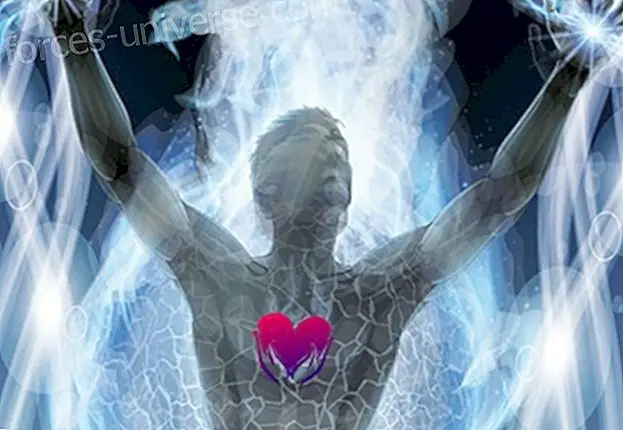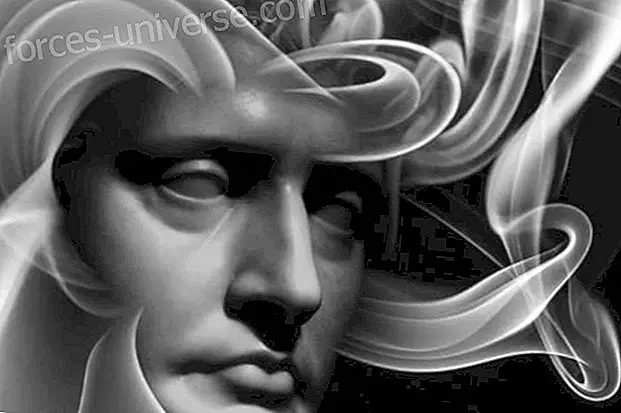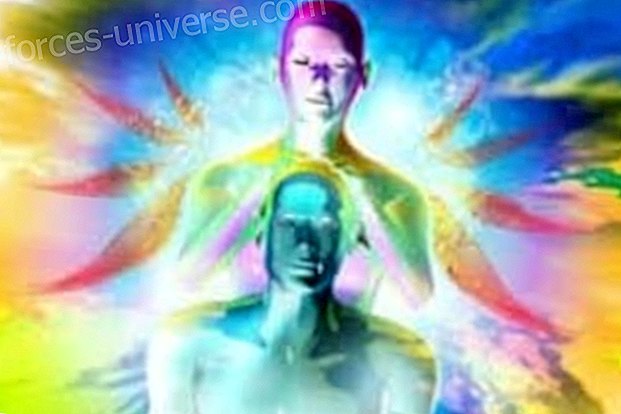Love is a popular and easy to understand topic, since we have all loved. Although some might say "I still don't know what love is, because I haven't fallen in love", others with a disappointed tone, "love doesn't exist". However, in both cases they confuse love with only one type of love. It is a very common mistake that people consider love as the passionate-sexual relationship between two people and do not see it in a broader sense. This article aims to update the present philosophy of love, which in ancient times, specifically in Plato's philosophy, was a torch to illuminate the paths of wisdom. So, if you have a true seeker spirit, you may have wondered, what is love ? Why do the great teachers urge to act according to love? Now, you just need to open your heart and start remembering.
What is love?
Numbers are the works, books, music, films that have spoken about love and have focused on it from pain, suffering, pleasure, joy and happiness that it produces, resulting in a bipolarity in its work, that is, a Strange opposite nature in the concept of love . If we look at it from that perspective, love would be a kind of coin with two opposite faces, on the one hand pleasure, on another pain. However, love is not exactly that way. To explain what love is all about remembering Plato's philosophy.

In the Banquet dialogue, Plato develops his theory of love by stating that society was wrong to consider only one type of love and to confuse its activity, thus, defines love as a desire to possess good forever (205a). It is easy to understand, but this definition hides both the true nature of love and its activity, because we can ask what is a desire? Why does man want good? What is a “forever?
What is desire?
Plato explains that desire is the lack of what we do not possess . For example, when we are hungry, we are going through a lack of food, but there is an impulse that pushes us to look for what to eat and satisfy that lack. That way the desire acts on the body plane. However, desire also manifests itself in the plane of the soul : when the soul desires power, it seeks with desire to possess it, many times it does not care about the means, but only its end; or when the soul desires wisdom, it seeks the most appropriate means to reach its end. In other words, Plato points out that desire is emptiness or pain and once satisfied it is pleasure ; also, it differentiates three types of desires, some will be characteristic of the body, others of the soul : Body desires are appetites for eating, babies, sex ; those of the soul are more complex since some are purer than others, for example, the desires of fame and power, on the one hand, and those of wisdom, on the other. But why do we want good? What is its end and how can we achieve it?
What is the relationship between love and renewal?
According to the concept of desire, love would become a kind of pain, as long as there is a lack for what is not possessed (good) and it is also pleasure as long as it is obtained from the object of desire. However, love does not want any object, but good . Many will say that their "good" is to possess wealth or fame, others wisdom, among other goods. In any case, they have a life goal and this is enough to say that man wants to possess good. And if we are not wrong, we must say that good is desired, not for a moment, that is, nobody wants to be rich for a week and then cease to be, but we want this "good" forever .
Desire for immortality
The fundamental question is why do we want to possess good forever? We should ask ourselves about the cause of that love. Plato responds: it is because man wants to be immortal (207a-d). We certainly did not expect that answer. No one would think that the reason you want wealth is to become immortal. However, it will not be strange to remember the millions consumed in just aesthetic treatments to rejuvenate and recover a baby's pottery, or the terrible atrocities committed by artists to go down in history.
Renewal Modes
Now, the simple fact of man in delaying old age and being remembered for generations, that is, the constant renewal, shows us the desire for immortality. But this desire also acts naturally, it is only enough to see how our body renews the hair, the nails, how the bones grow, it even has the possibility of procreating leaving generations of yes, and it is right there where love is erroneously situated. Love in its form of procreation is easier to see with the eyes of the body.
In a more complex way love (desire for immortality, for renewal) acts in the soul to be able to change hatred for love, anger for calm, and in addition it is capable of generating new opinions and knowledge. This act is beautiful, because it allows us to remember the relationship with the sea, always flowing.

In summary, love is a desire for good and its activity, as Plato says, is the renewal of both the body and the soul . Although the philosopher considered the love of the soul, that is, wisdom, as the purest love, since it leads to the highest knowledge and true happiness, he urged to love all beautiful beings, for all are in a state of renewal, leaving the new instead of the old, and being part of the whole, they are immersed in this world of love, each time living, each time evolving.
Minor Mysteries

In conclusion, these were the Minor Mysteries left by Plato in the Banquet dialogue. It is the revelation of the wisdom of love that exhorts to transform our body and our soul in favor of the nature of our true being . There are those who have complained about the little or almost no participation of the "others" in the activity of platonic love. Is not the care of our soul not for the health of the whole? The Minor Mysteries is the disregard of the truth of man. Could man live in peace if he does not recognize mistakes and try to change his mind? If each soul is not able to renew their opinions and knowledge we would live in darkness, being intolerant and angry. Although we live in a world that appears to be more of darkness than of light, it is enough that there is a soul that renews its knowledge until reaching the true wisdom for the happiness of many.
Surely you will be wondering about the Major Mysteries. Plato also wrote about these Mysteries, but will be addressed on another occasion.
Author Rosmery Guerrero Editor in the Great Family of hermandadblanca.org






